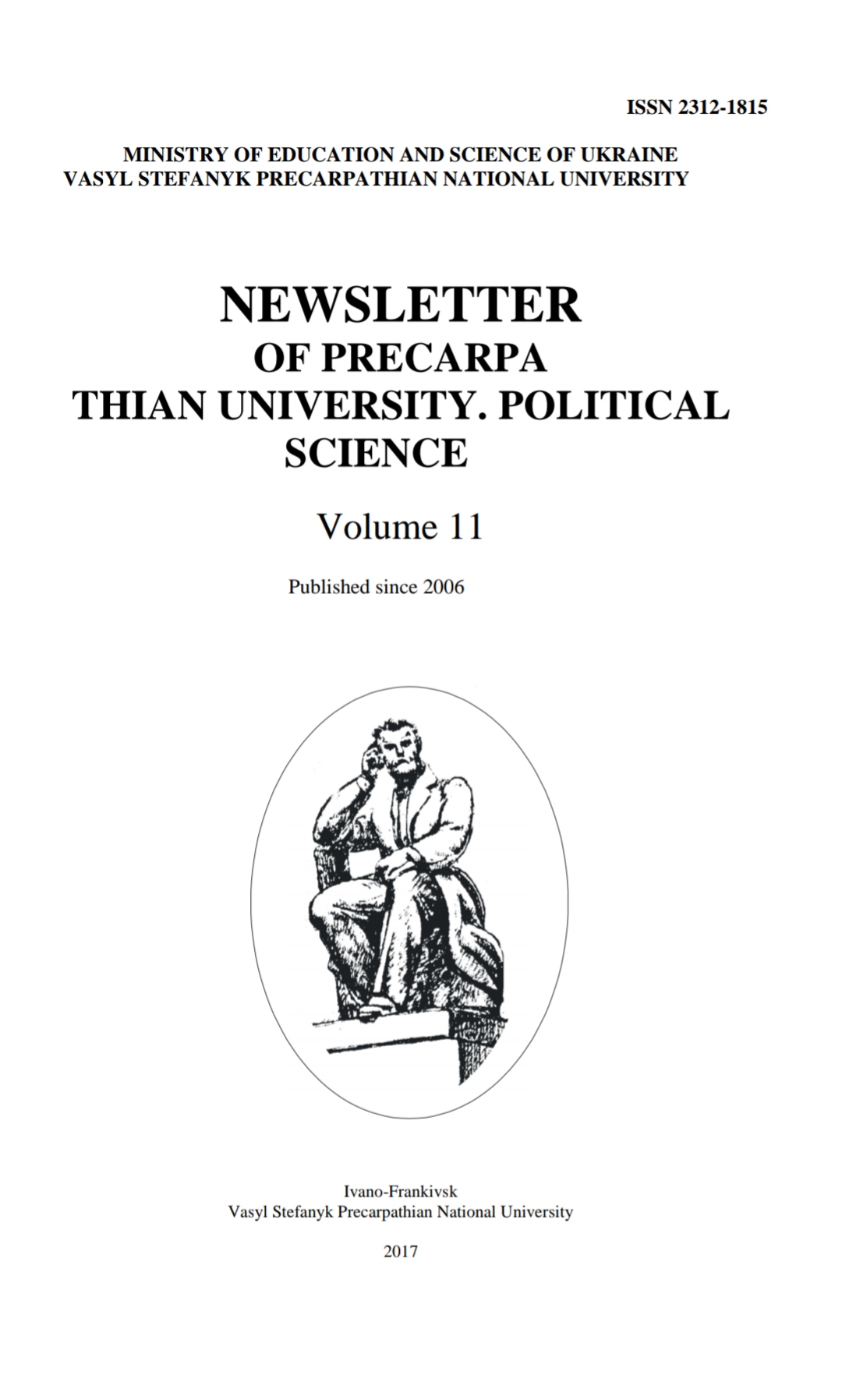The institutional dimension of European integration policy of Ukraine (For example, the presidency)
Keywords:
Key words: integration, European Union, the presidency, republican form of government, mixed republicAbstract
The article is devoted to the issue of institutional transformation of the political system of Ukraine in the context of European integration vector of development. It is noted that the direction of European integration foreign policy strategy of Ukraine, which today has become dominant, led to new challenges in the functioning of key political institutions and particularly of the presidency. On the basis of comparative analysis the presidency is compared to similar institutions in the EU, especially those with mixed form of republican government. The focus is drawn to the status and the specific role of the President as head of state, his rights and responsibilities, relations with the government, conditions of his resignation and constitutionally determined number of terms of appointment. The article specifies that despite some common political and legal principles of formation and development, national presidency has not met the requirements of the European level yet. There is a need to optimize its activities through the widest possible implementation of democratic
standards, the refusal of informal practices inappropriate for European countries in the functioning of political institutions in general and the presidency in particular. Backtracking on reforming of the presidency delegitimizes this political institution as an important factor of social change, radicalizes
public mood, and considerably impedes the integration of Ukraine into the European political, legal and economic space.


